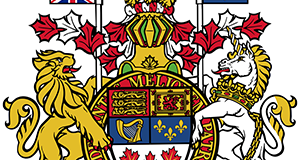 The Northwestern Ontario Municipal Association (NOMA) and the Federation of Northern Ontario Municipalities (FONOM) fully support today’s announcement by the Government of Ontario regarding investments in forest road infrastructure and the sawmill chip program. This commitment is an important step towards protecting a sector facing unprecedented challenges, including 35% softwood lumber duties, potential Section 232 tariffs, and the ongoing pressures on the pulp and paper industry.
The Northwestern Ontario Municipal Association (NOMA) and the Federation of Northern Ontario Municipalities (FONOM) fully support today’s announcement by the Government of Ontario regarding investments in forest road infrastructure and the sawmill chip program. This commitment is an important step towards protecting a sector facing unprecedented challenges, including 35% softwood lumber duties, potential Section 232 tariffs, and the ongoing pressures on the pulp and paper industry.
It is important to recognize that forest road infrastructure is public infrastructure. While built and maintained by the forest industry, these roads, water crossings, and bridges are essential for far more than forestry operations. They are used daily by recreationalists, anglers, hunters, trappers, Indigenous communities, emergency services, public utilities, mining companies, and other natural resource industries. For decades, this program has been underfunded, and today’s investment provides much-needed relief. The program is also a proven public-private partnership: for every dollar invested by the Province, the forest industry contributes three dollars. This 3:1 multiplier ensures strong returns for Ontarians while expanding access to critical public infrastructure across the North.
The announcement of a sawmill chip program is another vital measure that will help stabilize the sector as it manages the ongoing consolidation in the pulp and paper industry.
NOMA President Rick Dumas says: “This is not just about forestry — these investments are about people, communities, and access. Forest roads are lifelines in Northern Ontario. They ensure emergency services can respond, families can hunt and fish, and industries like mining can operate. By investing in this infrastructure, the Province is strengthening the foundation of our entire region.”
FONOM President Danny Whalen says: “The sawmill chip program is a lifeline at a time when our pulp and paper sector is in transition. It keeps mills operating, safeguards jobs, and gives our communities the stability they need while industry and government work together on long-term solutions.”
The forest industry remains one of the most trade-impacted sectors in Canada, carrying the weight of unfair and punitive duties. These barriers threaten jobs, weaken competitiveness, and risk undermining Canada’s national housing and economic goals. NOMA and FONOM are calling on the federal government to take immediate action to stabilize the sector — including resolving the ongoing softwood lumber dispute, protecting Canadian producers from potential U.S. Section 232 tariffs, and ensuring domestic policies support the long-term stability of the pulp and paper industry.
Ontario has shown leadership by supporting infrastructure and stabilization programs, and now it is vital that the federal government work hand-in-hand with the Province to build on this progress.
NOMA and FONOM are urging Ottawa to prioritize fair, practical, and timely trade resolutions that will give stability to the forestry sector. With Canada’s national housing and homebuilding ambitions at the forefront, the solution is clear: Ontario lumber is key to that success. By working together, both levels of government can ensure the forestry sector remains resilient, competitive, and able to deliver the wood products needed to meet Canada’s housing goals while supporting workers, communities, and the economy.
NOMA and FONOM thank the Ontario government — particularly Minister of Natural Resources and Forestry Mike Harris and Associate Minister of Forestry and Forest Products Kevin Holland — for their leadership in delivering these important supports
- Michipicoten Volunteer Fire Department Receives Generous Donation from LLP Building Solutions - January 21, 2026
- 5th Annual Doubles Funspiel - January 20, 2026
- Bus Cancellations - January 20, 2026
 Wawa-news.com Local and Regional News
Wawa-news.com Local and Regional News

